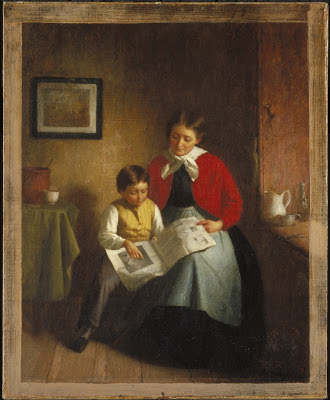Over at Writer Beware, some important information about the various reasons why it’s unnecessary to register copyright in a novel prior to publication:
Well, for one thing, you’re fully protected by copyright law from the moment you fix your work in tangible form (write down the words). In countries that have an official copyright registration process–and many don’t–registration provides no additional copyright protection.
It does confer various legal benefits. Where available, official registration provides prima facie evidence of copyright ownership that can be used in court. In the US only, registration is a pre-requisite for filing a copyright infringement lawsuit.
However, you are not in danger of copyright infringement at the submission stage. Many authors have an unreasonable fear of theft by agents and publishers–but good agents and publishers won’t risk their reputations this way, and in any case it’s easier just to work with you than go to all the trouble of stealing your work and pretending it belongs to someone else. As for bad agents and publishers…they aren’t interested in your work at all, only in your money.
Art: The Illustrated Newspaper by Platt Powell Ryder




That never bothered me but what about copyright on a blog, say you are writing your novel, one blog post at a time. Do you need a copyright clause?
I copyrighted many bad screenplays in my 20s. I think that is encouraged, though. Not bad screenplay writing, but copyrighting them. I'm just glad I don't have to worry about it with my hopefully-not-bad novels. Growth!
Screenplays, musicals, and other scripted works, yes. Everything else? I mean seriously, is someone going to steal work they won't be able to reproduce later? –Or even edit?
I had forgotten that we shouldn't pay an agent for representing us. As I round third base with my manuscript, I will remember to send it only to reputable agents…
Thanks for sharing the article!
Once in a while Amazon will ask an author to prove they're the legal owner of a book (in the self-pub universe, not the trad universe). This situation comes up if you've previously posted excerpts on a blog, for example, or somebody pirates your work. It makes things easy if you've copyrighted your work. It also isn't necessary to copyright — you can prove you're the owner in other ways.
re "Over at Writer Beware, some important information about the various reasons why it's unnecessary to register copyright in a novel prior to publication…" –
the comments have some pretty good real world examples why that may not be true…
I spill a little of my blood (full of DNA) on all my hardcopies. Copyrighted forever. You know, until the Vampire Apocalypse.
As I understand the copyright law as it currently exists, ALL created work is covered at the time it is created. This covers written items (whether on paper or electronically), artistic work, photography, music, etc. If challenged all you have to do is prove that you created it and that is was done prior to any other work claiming to be the original. There are all kinds of ways this proof can be done. Computers of course do it for you automatically. Back in the pre-electronic era – just after the demise of the dinosaurs – if you didn't have a reliable witness, one way to protect yourself would be to make a copy of what you created, for example a drawing, and register mail it to yourself but never open the envelope or package. This or some variation can still be done today.
None of this applies of course if you write under contract or previously agreed that your writing/creation belonged to someone else when you did it under certain circumstances.
I'm an ideas person not a technician. While inspiration and ideas come easily, I sweat for years, sometimes a decade, on re-writes. During that time it's not usual to see ideas I hoped were original being used in other work that have come out while I'm endlessly fine-tuning.
Feeling frustrated by much and many today. 🙂
Most people reading this today likely believe that when something has been posted to the Internet that it is thenceforth in the "public domain." Or they think it should be and act accordingly by reposting. Either way, posting to the Internet does not automatically constitute losing one's rights. Trouble is, once that has happened, establishing one's rights and getting the webmaster or who or whatever controls that site or sites to take it down is a major hassle. And it can end up costing a bundle. People who pirate all the time know about the hassle and so steal with abandon. But when people who are ignorant of the law steal, violate copyrights, then it becomes a major headache. Some of you reading this know what I'm talking about. Maybe all of you.
"Most people reading this today likely believe that when something has been posted to the Internet that it is thenceforth in the "public domain." Or they think it should be and act accordingly by reposting."
This is so true, and it's why it's so important with photos and images to check and see if it's free to share. Many aren't. And if you have a question don't do it. They can sue without even giving a take down warning.